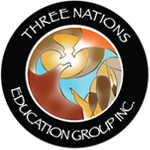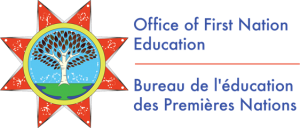Duration
1 class period (45 – 50 minutes)
Objective
Students will explore Seventh Generation Thinking and Netukulimk.
Materials
- White Board or Flip Chart
- Teacher’s laptop
- Internet connection
- Video: Inquiry Tool – Netukulimk https://www.youtube.com/watch?v=RAudXewjJGQ
- Paper & pens/markers
Opening (10 minutes)
Introduce the concept of Seventh Generation Thinking and how this informs a worldview to your class. Write the words on the board and discuss their meaning. How long is seven generations? What do they think it means to think about seven generations in the future when they use resources from Mother Earth? Make a word map during this brainstorming activity.
Activity
- Video viewing & Class Discussion (45-50 minutes)
- Show the students The Ocean School’s Inquiry Tool – Netukulimk video to explain worldview through Netukulimk – living in a respectful way with the environment to ensure and honour sustainability and prosperity for the ancestor, present and future generations. https://www.youtube.com/watch?v=RAudXewjJGQ (3 min 40 s).
- Then break students up into small group of three or four for a discussion:
- What are some examples of how you use Seventh Generation Thinking or of Netukulimk already in your lives?
- Can you think of some examples of how using this type of thinking could change your relationship with Mother Earth?
- As a group, summarize your examples in writing, create a poster, or represent your ideas in a manner of your choosing to teach others what you’ve learned.
- Bring them back as a class and have a spokesperson for each group highlight the results of their brainstorming discussion.
Extension
Show the students Netukulimk with Clifford Paul to explain this worldview even further https://www.youtube.com/watch?v=NmBmcJwYzXk (4 mins). Afterwards, you can take your class on a walk around your school to pick up litter. Take before and after pictures and celebrate your students for being protectors of Mother Earth, and honour their relationship to achieve balance and harmony with all of creation.
Evaluation
This activity is discussion-based, so participation is the main form of evaluation. The level of engagement, depth of questions, and ability to listen to others are suggested as the primary grading elements.




